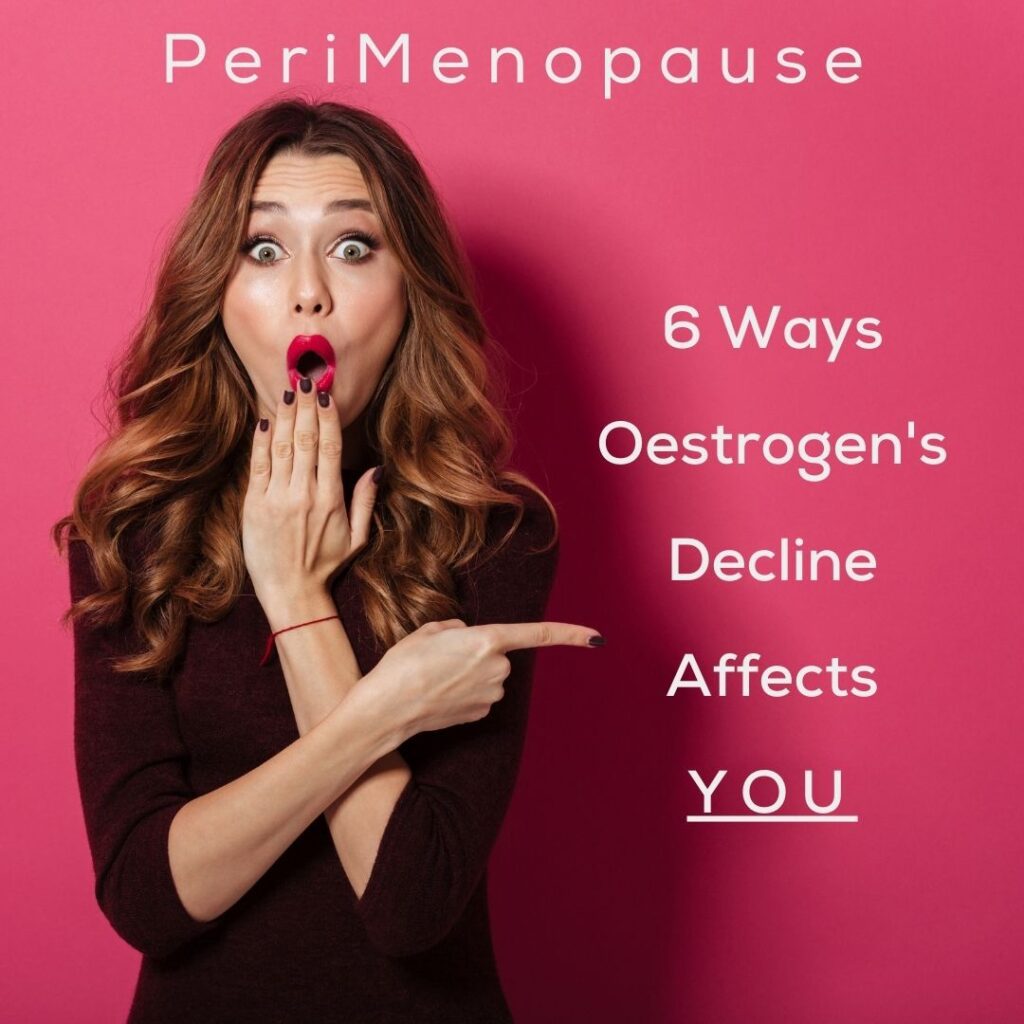Perimenopause is the stage between the start of the decline in your sex hormones and the cessation of your period. Menopause is defined as the one day in your life, after not having a period for 12 months.
Symptoms of perimenopause can begin years before menopause, as your hormone levels, particularly oestrogen and progesterone, start to fluctuate. This phase can last anywhere from 7 to 10 years, and the duration and severity of symptoms can vary widely among women.
It can absolutely be a rollercoaster ride, so understanding the early signs can help you better navigate this transitional period.

Here are 3 signs that might suggest you are Perimenopausal:
1. Changes in Your Period
One of the most common signs of perimenopause is a change in your menstrual cycle.
You might notice:
- Periods that are shorter or longer than usual
- Changes in flow, either heavier or lighter
- Unpredictable timing, with some months having no period at all
- An Increased in pain or discomfort
- Spotting or sudden episodes of heavy bleeding
These changes happen because of fluctuating Oestrogen levels, which impact your reproductive system…. and many other processes in the body!
2. Mood Swings and Brain Fog
Perimenopause can cause mood changes due to these hormonal fluctuations.
You might feel more anxious, irritable, or just “off.”
It’s not uncommon to experience:
- Mood swings
- Depression or anxiety
- Brain fog or difficulty concentrating
These mood changes can be unsettling, but you’re not alone.
In fact the most reported symptom of perimenopause is Anxiety. Many women feel it everyday.
The cause?
Changes in Oestrogen and Progesterone levels can impact neurotransmitters like serotonin and hormones like cortisol, affecting your mood.
3. Headaches and Migraines
Another sign of perimenopause is an increase in headaches or migraines. This is because fluctuations in estrogen and progesterone can impact blood vessels in the brain. If you’re experiencing more frequent or intense headaches, it might be due to these hormonal changes.
Symptoms can include:
- Headaches that are more frequent or severe
- Migraines with nausea or sensitivity to light and sound
How Hormones Affect Headaches
Estrogen: High estrogen levels can increase histamine production, leading to inflammation and triggering migraines. On the other hand, low estrogen levels can affect serotonin, a neurotransmitter that helps regulate pain and mood. This fluctuation can lead to headaches and mood swings.
Progesterone: Progesterone has a calming effect on the brain. During perimenopause, declining progesterone levels can lead to increased stress and irritability, which can contribute to headache occurrences.
Understanding these hormonal impacts can help manage headaches better during perimenopause.
Understanding the Transition
Every woman’s experience with perimenopause is 100% unique. Some might have intense symptoms, feeling like they cant cope, while others might have mild ones symptoms and breeze through.
It’s easy to feel overwhelmed or isolated, but remember, this is your journey, and you are not alone.
Every woman goes through this! Its not optional- unfortunately.
If you’re experiencing any of the signs mentioned above, or any other symptom that is not mentioned, after all there are a few consider reaching out for support.
I offer a FREE 15 min Health Chat where we can discuss your symptoms and find the best course of action for you. This might include lifestyle changes, herbal remedies, or nutritional advice.
Feel free to connect with me to discuss your specific needs. Click here to contact me.
Together, we can navigate this transition and help you feel better, naturally.




